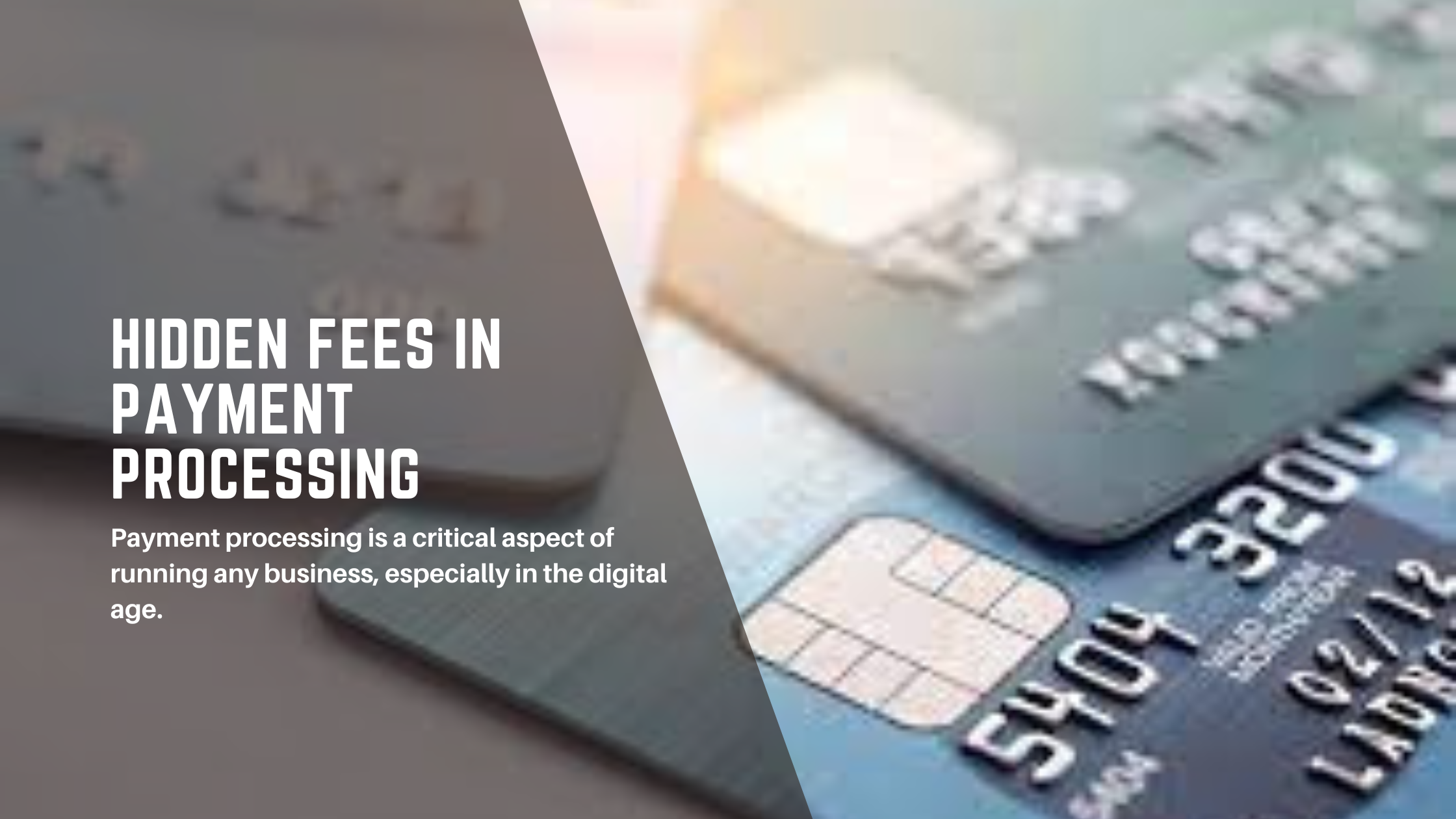
Hidden Fees in Payment Processing: What to Look Out For
Payment processing is a critical aspect of running any business, especially in the digital age. However, many businesses fall into the trap of hidden fees that can erode profits and complicate financial planning. Understanding these hidden fees and knowing how to avoid them is essential for maintaining a healthy bottom line. In this guide, we’ll explore the common hidden fees in payment processing contracts and provide tips on how to steer clear of them.
Common Hidden Fees in Payment Processing
1. Transaction Fees
While most businesses expect to pay a fee per transaction, the specifics can be misleading. Transaction fees often include:
- Base Rate: The standard percentage fee charged per transaction.
- Per-Transaction Fee: A flat fee added on top of the percentage rate for each transaction.
- Cross-Border Fees: Additional charges for processing international transactions, often overlooked until the first global payment is processed.
These fees can vary based on the type of card used (credit, debit, rewards cards), the transaction size, and the location of the customer.
2. Monthly Minimum Fees
Some payment processors impose a monthly minimum fee, requiring you to generate a certain amount of processing fees each month. If your business falls short, you’ll be charged the difference. This fee is often hidden in the fine print and can catch small businesses off guard, especially during slow months.
3. Statement Fees
Payment processors may charge a fee for sending monthly statements, either digitally or by mail. While it might seem small, these fees can add up over time, especially if they’re not disclosed upfront.
4. PCI Compliance Fees
Payment Card Industry Data Security Standard (PCI DSS) compliance is mandatory for businesses handling credit card transactions. Some processors charge a PCI compliance fee, while others may impose a non-compliance fee if you fail to meet the required standards. These fees can be recurring and are often buried deep in contracts.
5. Early Termination Fees
Many payment processing contracts include a clause that imposes an early termination fee if you decide to switch providers before the end of your contract. These fees can be substantial, sometimes amounting to the total fees you would have paid over the remaining contract period.
6. Batch Fees
A batch fee is charged when you close out your daily credit card transactions and submit them for processing. While this fee is typically small, it’s charged every day, and businesses that process a large number of transactions daily may find these fees adding up.
7. Chargeback Fees
When a customer disputes a charge, it results in a chargeback. Payment processors often charge a fee for handling chargebacks, in addition to the potential loss of revenue from the disputed transaction. High chargeback rates can also lead to additional penalties or higher processing rates.
8. Annual Fees
Some payment processors charge an annual fee for maintaining your account. This fee is often lumped together with other charges, making it less visible. It’s important to verify whether such fees exist and if they’re justified.
9. Markup Fees
Payment processors typically charge a markup fee above the interchange rate set by card networks like Visa and MasterCard. While a markup is standard, processors might add hidden markups or adjust the rates without clear disclosure, leading to unexpected costs.
Tips for Avoiding Hidden Fees
1. Read the Contract Carefully
Before signing any agreement with a payment processor, take the time to thoroughly read and understand the contract. Look for sections detailing fees, penalties, and other costs. Pay special attention to any terms that seem vague or unclear, and don’t hesitate to ask for clarification.
2. Ask for a Fee Schedule
Request a detailed fee schedule from the payment processor. This document should outline all potential charges, including transaction fees, monthly fees, and any penalties. Having a clear breakdown helps you understand what you’re paying for and whether the fees are justified.
3. Negotiate Terms
Many fees are negotiable, especially if your business processes a high volume of transactions. Don’t be afraid to negotiate better terms, such as lower transaction fees, waived setup fees, or the elimination of monthly minimums.
4. Opt for Transparent Processors
Choose payment processors known for their transparency. Reputable processors will provide clear information about all fees upfront and won’t hide costs in complex legal language. Look for processors that offer straightforward pricing models, such as flat-rate or interchange-plus pricing.
5. Monitor Your Statements
Regularly review your monthly statements for any unexpected charges or fee increases. Monitoring your statements allows you to catch discrepancies early and address them with your payment processor.
6. Consider the Total Cost of Ownership
When comparing payment processors, consider the total cost of ownership, including all potential fees and charges. Sometimes a processor with slightly higher transaction fees may be more cost-effective overall if they don’t impose hidden fees.
7. Stay PCI Compliant
Maintaining PCI compliance not only protects your business from data breaches but also helps you avoid non-compliance fees. Ensure that your payment processor supports your efforts to stay compliant, and be proactive in completing any required assessments or certifications.
Conclusion
Hidden fees in payment processing can significantly impact your business’s profitability if you’re not careful. By understanding the common fees and taking proactive steps to avoid them, you can ensure that you’re getting the best deal possible. Always read contracts thoroughly, ask questions, and choose a payment processor that values transparency.
At Merchant Connect, we pride ourselves on offering clear, straightforward pricing with no hidden fees. Contact us today to learn how we can support your business with reliable, cost-effective payment processing solutions.
